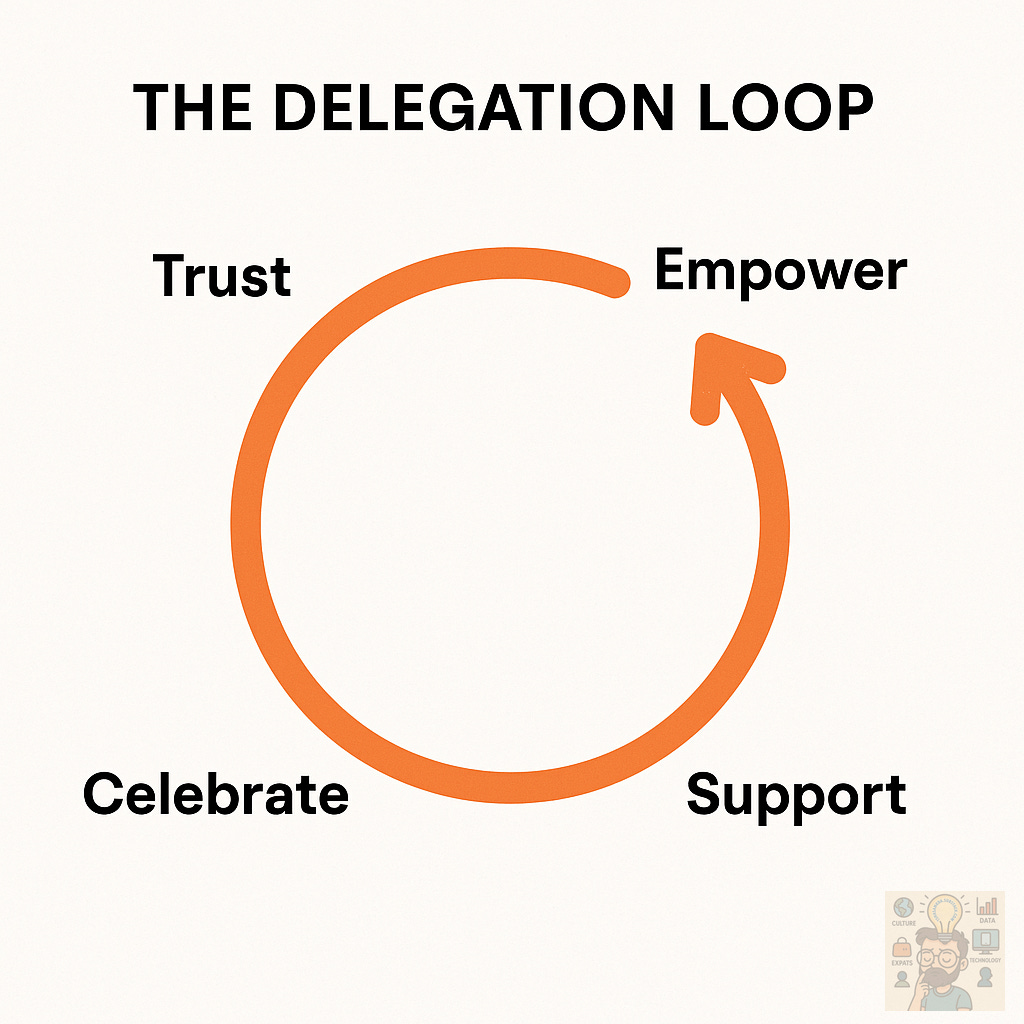How Delegation Builds Confidence, Connection, and Culture on Your Team
Delegation done right isn’t about less work; it’s about better work.
Many leaders hesitate to delegate because they fear losing control, slowing progress, or burdening others. But the truth is, thoughtful delegation is one of the most powerful tools for building a confident, connected, and high-performing team. When done right, it’s not about offloading work; it’s about creating space for growth, trust, and collaboration.
The Trust Dividend
When a leader delegates intentionally, it signals trust. It tells your team, “I believe in your judgment. I trust you to handle this.” That simple act begins to shift the energy in the team dynamic. Team members step up, bring their best selves, and feel genuinely valued. Over time, this trust compounds. It shows up in how people speak up in meetings, offer ideas, and take initiative. Delegation becomes the first move in a broader culture of ownership.
Confidence Through Ownership
Confidence doesn't grow in micromanaged environments. It grows in the open space created when someone is given responsibility with support. Delegation lets individuals stretch. They learn by doing, make small mistakes, and build resilience. When you pair delegation with guidance and regular feedback, it becomes a confidence accelerator. You’re not just getting tasks done; you’re developing future leaders.
Delegation also builds visibility. When people are entrusted with meaningful work, they are seen, not just by their manager, but across the team or organization. This recognition strengthens self-belief and encourages individuals to take on bigger challenges with assurance.
Connection: From Tasks to Trust
When you delegate with intention, you're not just handing off work. You're showing interest in someone’s growth. Ask questions like, “Would this challenge interest you?” or “What skills do you want to build this quarter?” This level of care shifts delegation from transaction to relationship. People feel seen. They know their goals matter. That’s how you deepen connection and loyalty within teams.
Culture: What You Delegate Signals What You Value
Your delegation patterns shape your team culture. If you only delegate grunt work, your team may feel used. But if you delegate strategic projects, give people visibility, and offer context, not just instructions, you build a culture of inclusion and empowerment. Delegation becomes a tool for clarity and alignment. It helps distribute not just tasks but also meaning.
Celebrate the Wins
Recognition is a crucial part of the delegation cycle. When someone successfully completes a task or grows through a challenge, celebrate it publicly when appropriate. This reinforces positive behavior, boosts morale, and encourages others to take ownership. Wins don’t always have to be big. A simple acknowledgement, a thank-you message, or highlighting progress in a team meeting can go a long way. Celebrating effort shows that you value growth as much as results.
Delegation Is a Two-Way Street
When you delegate with clarity, empathy, and intention, you don’t just lighten your load; you create a culture where people feel seen, capable, and trusted. And trust is what turns good teams into great ones.
So the next time you’re about to say “I’ll just do it myself,” pause. Ask instead, “Who could grow through this?” - You might be surprised how far a little trust can go.
Small Shifts, Big Impact
You don’t have to overhaul your leadership style overnight. Start by identifying one task you’re holding onto that someone else could grow through. Be clear about expectations, but flexible in how they get there. Offer support without hovering. And most importantly, celebrate their effort and results.
Delegation, when done right, creates a loop of confidence, connection, and culture. Your team becomes not just more productive, but more engaged, capable, and ready for the future.
Real-World Example:
Take Patty McCord, the former Chief Talent Officer at Netflix. She was known for her commitment to high-performance teams. One of her key strategies was delegation, trusting employees with significant responsibility, even when they were new to the role. This approach wasn’t just about delegating work; it was about fostering ownership, independence, and empowerment. Over time, this practice created a culture of accountability and trust, allowing the company to move fast and innovate effectively.
Start by identifying one task you can delegate to empower a team member:
Are you ready to delegate with intention? Start today by identifying one task you can delegate to help someone on your team grow. Reflect on the impact it could have not just on the task, but on your team's confidence, connection, and culture. Share your experience in the comments or in your team meeting!
You might be surprised how much this small shift can transform your leadership style and your team’s performance.
Closing Thought:
Let go of control, not of standards. When you delegate with clarity and care, you don’t just get things done; you build a team that thrives.
Lead by lifting others.
Further Reading
If you found this topic intriguing, you might also enjoy







I like "Let go of control, not of standards"
This is actually a powerful write up for every leader to read .